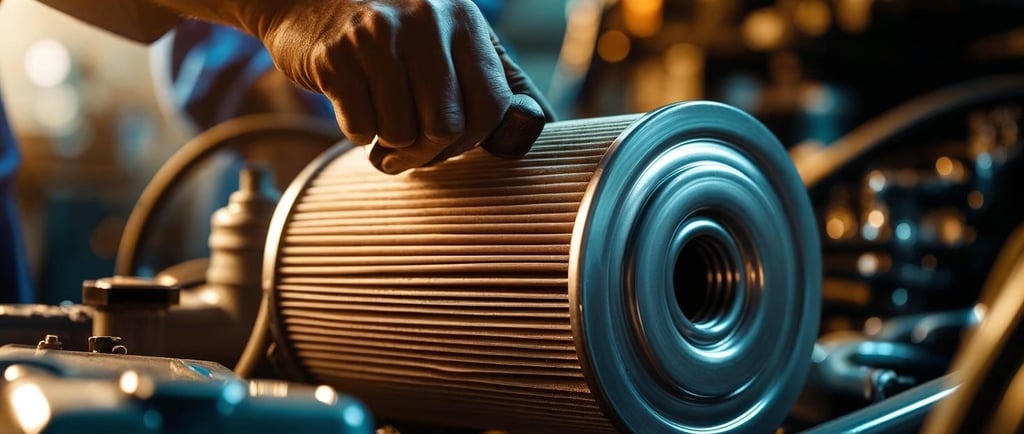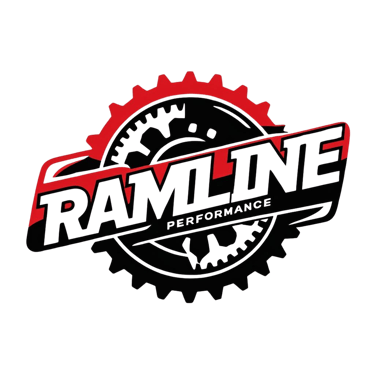Why Fuel and Oil Filters Matter: The Key to a Longer-Lasting Engine
Introduction When it comes to keeping your vehicle running smoothly, most drivers think of regular oil changes, tire rotations, or topping off fluids. But there’s one critical component that often gets overlooked—your filters. Fuel filters and oil filters play a crucial role in maintaining engine performance, preventing costly damage, and ensuring your vehicle lasts longer. In this blog post, we’ll break down exactly why fuel and oil filters matter, how they work, and when you should replace them. What Does a Fuel Filter Do? Your car’s fuel filter acts as a gatekeeper for the fuel system. Its main job is to catch dirt, rust, and other particles that can come from the gas tank. Without a fuel filter, these contaminants can clog your injectors, reduce fuel efficiency, and even damage your engine. Key benefits of a clean fuel filter: • Better fuel efficiency • Smoother acceleration • Protection for fuel injectors • Reduced engine misfires Think of your fuel filter as the first line of defense between dirty fuel and your engine’s performance. What Does an Oil Filter Do? While your engine is running, oil circulates through it to keep all the moving parts lubricated. The oil filter removes dirt, metal particles, and other debris from the oil before it recirculates. Without an effective oil filter, dirty oil can cause engine parts to wear out faster or even lead to complete engine failure. Why your oil filter is critical: • Keeps engine oil clean • Extends engine life • Prevents buildup of harmful particles • Reduces engine wear and tear Regular oil and oil filter changes are one of the most cost-effective ways to protect your engine in the long run. Signs You Need to Replace Your Filters You don’t have to be a car expert to know when it’s time to change your fuel or oil filter. Here are some common signs to watch out for: Fuel filter: • Engine sputtering or stalling • Difficulty starting your car • Poor acceleration • Decreased fuel economy Oil filter: • Dirty or sludgy oil • Decreased oil pressure • Strange engine noises • Check engine light comes on If you’re noticing any of these issues, it might be time to swap out those filters. How Often Should You Change Your Filters? There’s no one-size-fits-all answer, but here are some general guidelines: • Oil filter: Every time you change your oil (typically every 3,000 to 7,500 miles, depending on your vehicle and oil type). • Fuel filter: Around every 20,000 to 40,000 miles, but check your owner’s manual or mechanic for vehicle-specific recommendations. Changing your filters regularly can save you from much bigger repair bills down the roadHow Often Should You Change Your Filters? There’s no one-size-fits-all answer, but here are some general guidelines: • Oil filter: Every time you change your oil (typically every 3,000 to 7,500 miles, depending on your vehicle and oil type). • Fuel filter: Around every 20,000 to 40,000 miles, but check your owner’s manual or mechanic for vehicle-specific recommendations. Changing your filters regularly can save you from much bigger repair bills down the roadHow Often Should You Change Your Filters? There’s no one-size-fits-all answer, but here are some general guidelines: • Oil filter: Every time you change your oil (typically every 3,000 to 7,500 miles, depending on your vehicle and oil type). • Fuel filter: Around every 20,000 to 40,000 miles, but check your owner’s manual or mechanic for vehicle-specific recommendations. Changing your filters regularly can save you from much bigger repair bills down the roadHow Often Should You Change Your Filters? There’s no one-size-fits-all answer, but here are some general guidelines: • Oil filter: Every time you change your oil (typically every 3,000 to 7,500 miles, depending on your vehicle and oil type). • Fuel filter: Around every 20,000 to 40,000 miles, but check your owner’s manual or mechanic for vehicle-specific recommendations. Changing your filters regularly can save you from much bigger repair bills down the roadHow Often Should You Change Your Filters? There’s no one-size-fits-all answer, but here are some general guidelines: • Oil filter: Every time you change your oil (typically every 3,000 to 7,500 miles, depending on your vehicle and oil type). • Fuel filter: Around every 20,000 to 40,000 miles, but check your owner’s manual or mechanic for vehicle-specific recommendations. Changing your filters regularly can save you from much bigger repair bills down the roadHow Often Should You Change Your Filters? There’s no one-size-fits-all answer, but here are some general guidelines: • Oil filter: Every time you change your oil (typically every 3,000 to 7,500 miles, depending on your vehicle and oil type). • Fuel filter: Around every 20,000 to 40,000 miles, but check your owner’s manual or mechanic for vehicle-specific recommendations. Changing your filters regularly can save you from much bigger repair bills down the roadHow Often Should You Change Your Filters? There’s no one-size-fits-all answer, but here are some general guidelines: • Oil filter: Every time you change your oil (typically every 3,000 to 7,500 miles, depending on your vehicle and oil type). • Fuel filter: Around every 20,000 to 40,000 miles, but check your owner’s manual or mechanic for vehicle-specific recommendations. Changing your filters regularly can save you from much bigger repair bills down the road. Why Buy Filters from Us? Not all filters are created equal. At [Your Website Name], we offer premium-quality fuel and oil filters that are: • Compatible with a wide range of vehicles • Built to OEM standards • Tested for durability and performance • Shipped fast and priced competitively Whether you’re a weekend warrior, a DIY mechanic, or just someone who wants to protect their ride, we’ve got the right filters for you. Final Thoughts Fuel and oil filters may seem like small parts, but they do a big job. Replacing them regularly ensures your vehicle runs efficiently, lasts longer, and stays out of the repair shop. If you’re serious about performance and engine health, don’t overlook your filters. Shop now and keep your engine clean, powerful, and protected.


My post content


